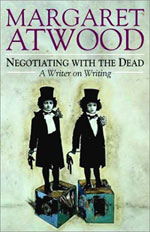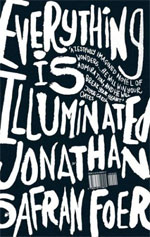
Margaret Atwood made me get teary-eyed on the subway while reading this book.
“Negotiating With the Dead” is a reflection on the roles of writers and their readers, adapted and somewhat expanded from the Empson Lectures which Margaret Atwood delivered at Cambridge University in 2000. It is breathtakingly erudite and eclectic, but is also interwoven with very personal and down-to-earth recollections and episodes from Atwood’s own journey as both a writer and a reader. It was a sweet reminiscence about the person whom she considered to be her first reader – and who she later paid tribute to with an appearance in one of her novels – that brought on my moved and appreciative tears. It also drove home that the audience and the individual reader are critical figures in the symbiosis of the writer’s creative process.
This book brims with examples from the classical to the contemporary of the multifaceted and sometimes conflicted roles, challenges and opportunities of the writer. At the same time, much of it has a conversational tone that undoubtedly stems from both its origin as a series of lectures, but also Atwood’s strong and singular voice. Some might count that as a flaw of this work, in that the overall voice is somewhat inconsistent, but I think that’s part of its charm and makes the subject matter that much more approachable, digestible and memorable.
Negotiating With the Dead is one of the Canadian non-fiction titles I’ve recommended for Canada Reads 2012: True Stories. If you’d like to support this book as a possible Canada Reads finalist, you can vote for it here, as well as perusing some other great recommendations.










